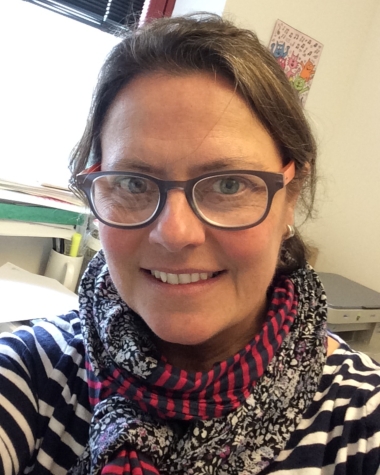Keila Dhondt, DVM

Senior Lecturer
Department of Biomedical Sciences
Department of Microbiology & Immunology
Cornell University College of Veterinary Medicine
C4-121 Veterinary Medical Center
Ithaca, NY 14853
Profile
Research/Clinical Interests
In addition to teaching, Dr. Dhondt conducts research regarding the health of wild birds.
As of 2020, Dr. Dhondt is collaborating on a new research project investigating the connection between climate change and the emergence of disease in the Arctic’s apex avian predator, the Gyrfalcon. This project is funded by the John T. and Jane A. Wiederhold Foundation. As part of this project, Dr. Dhondt and her team of brilliant veterinarian students and Cornell undergrads are studying the relationship between weather variables and the prevalence of avian blood parasites (malaria, leucocytozonosis, haemoproteus) from 2004 – 2021 by using archival and newly collected samples from nestling and adult Gyrfalcons in western Alaska.
Previously, Dr. Dhondt worked as a researcher for two decades on the House Finch Disease Project, a long-term research project funded by NIH regarding the transmission of infectious diseases in wild birds. In collaboration with the Cornell Lab of Ornithology, Dr. Dhondt coordinated fieldwork, managed experiments in aviaries, conducted lab analysis, developed research proposal, and trained dozens of undergraduate and graduate students on field and laboratory techniques.
She also conducted research in France and New Zealand.
Teaching
Dr. Keila Dhondt is a veterinarian who works as a lecturer in the Department of Microbiology & Immunology and the Department of Biomedical Sciences.
In the department of Microbiology & Immunology, Dr. Dhondt oversees and teaches the laboratory curriculum for Foundation course IV (Host, Agent & Defense), and tutors Block IV’s preclinical veterinary curriculum. She also serves on the Course Design Group for Block IV.
In the Department of Biomedical Sciences, Dr. Dhondt tutors Foundation course IIIb (Function and Dysfunction) and teaches undergraduate level Histology (BIOAP4130), which attracts mostly pre-health students.
Dr Dhondt also gives lectures in other courses related to wildlife conservation (VETCS1200 and VETMI7448).
As a mentor, Dr. Dhondt feels responsible for creating a learning environment where everyone feels welcome. Putting diversity, equity, and inclusion principles into practice every day is a top priority across her work.


